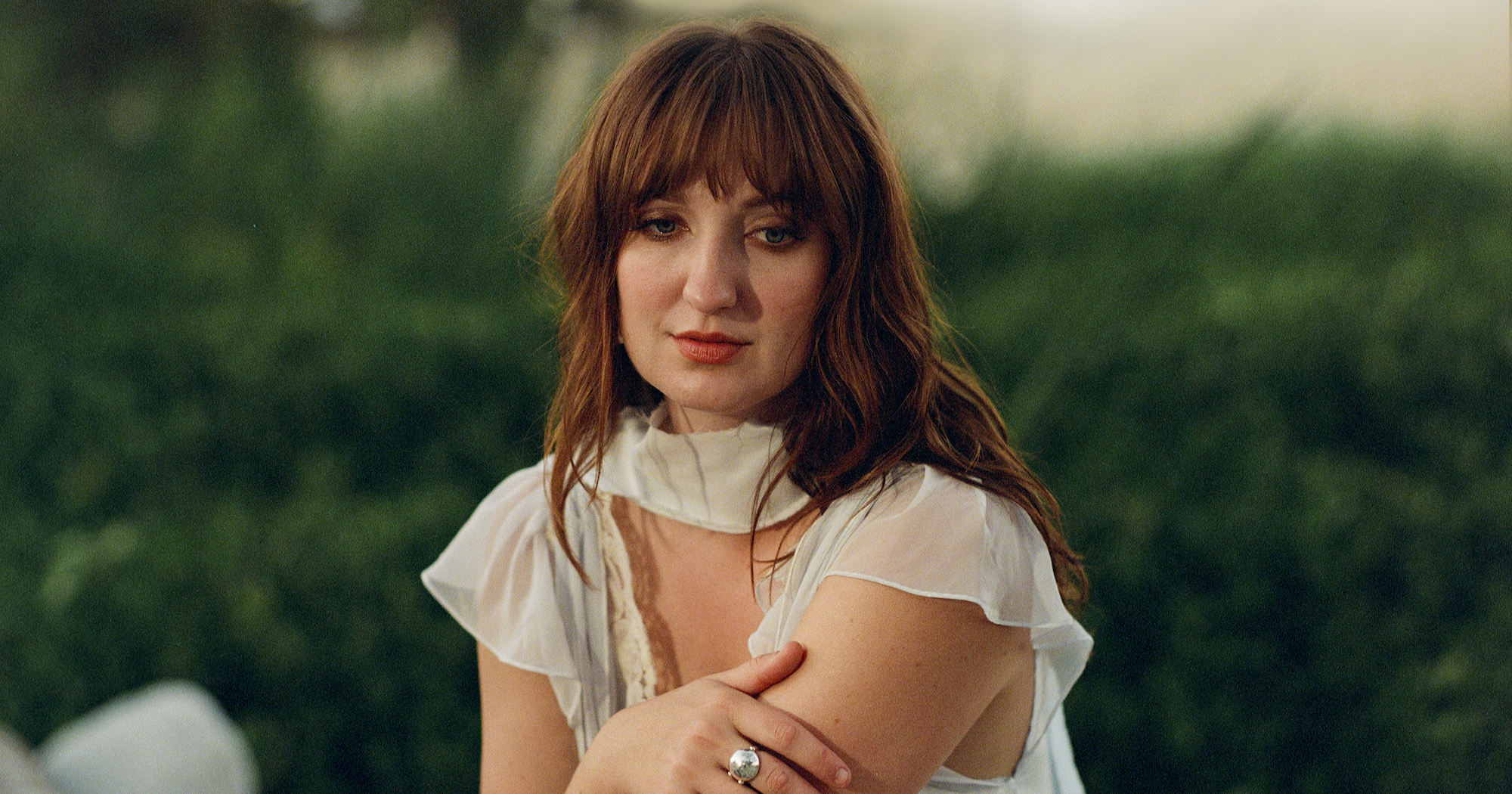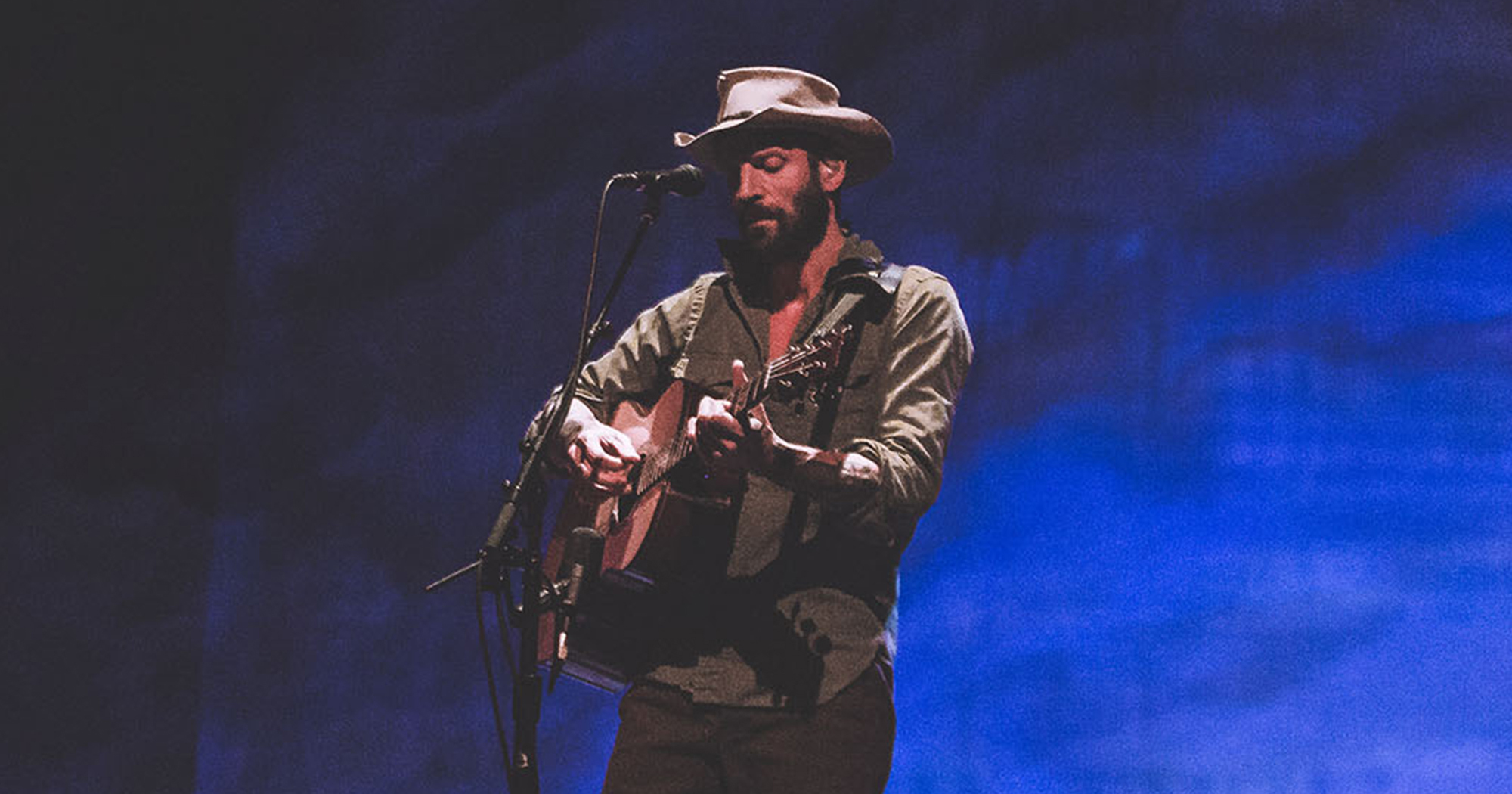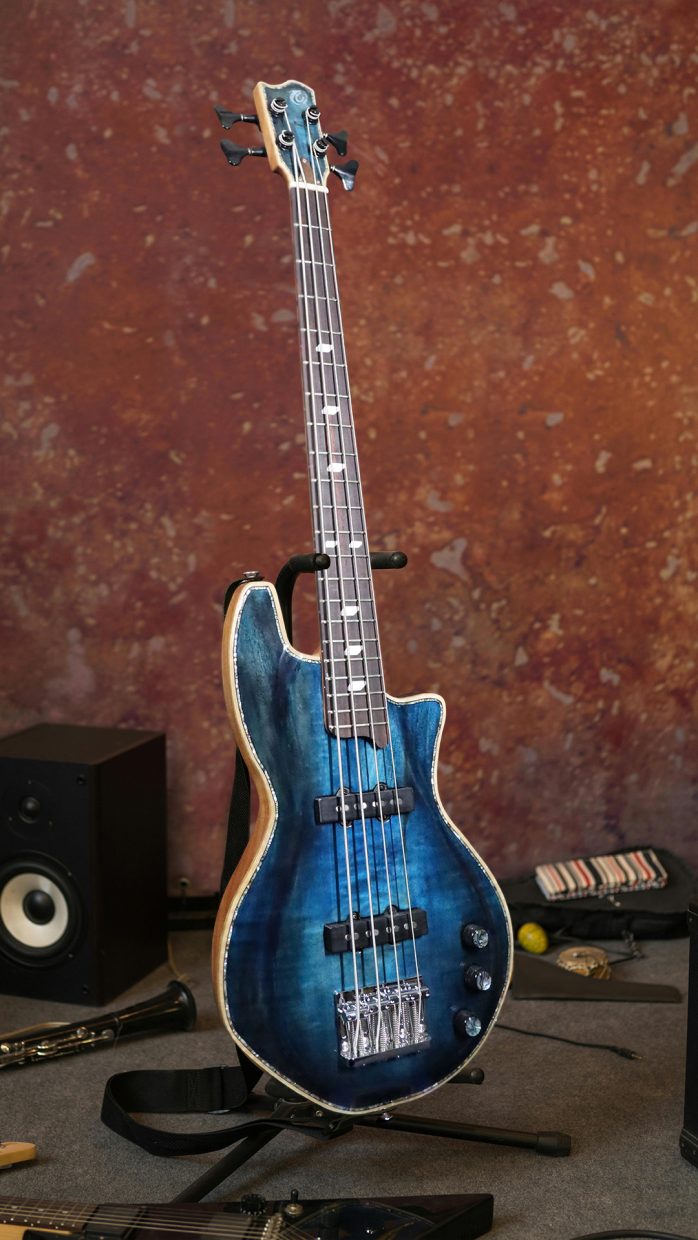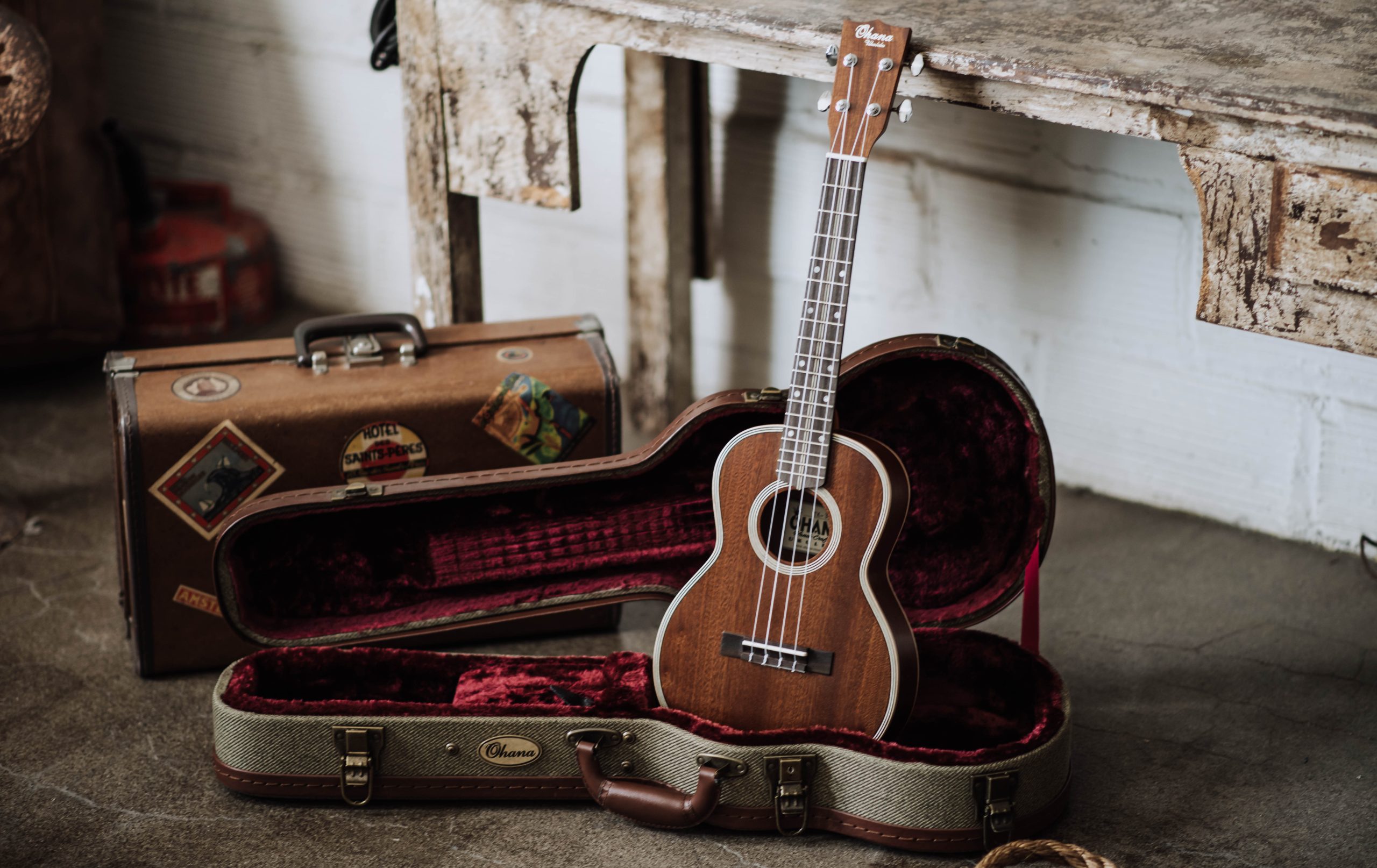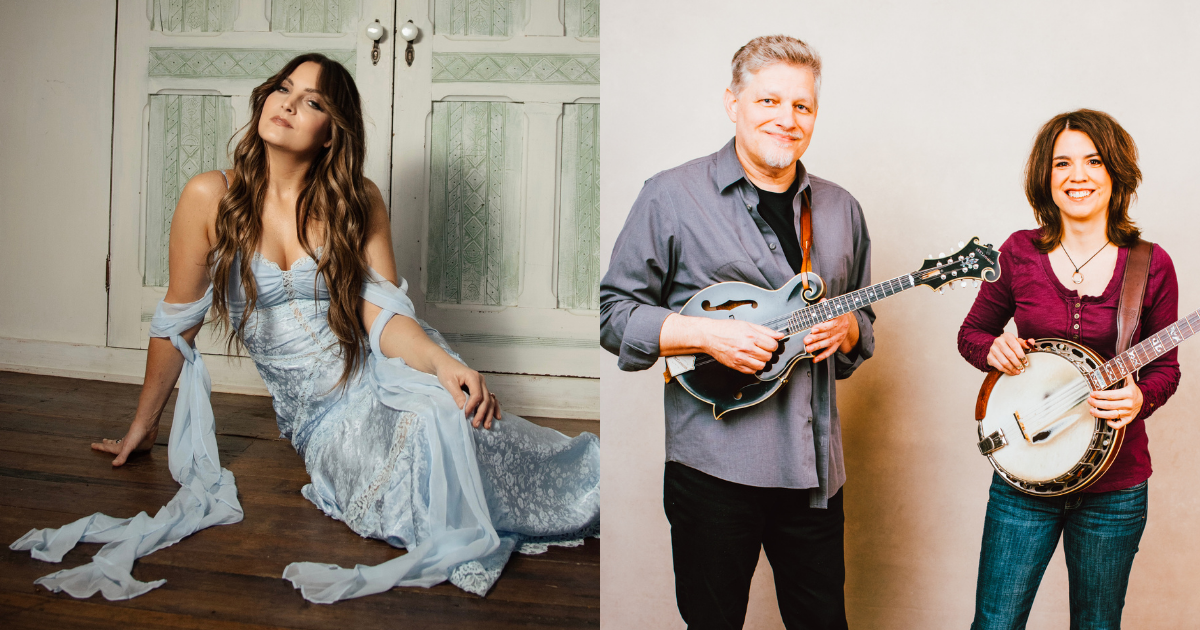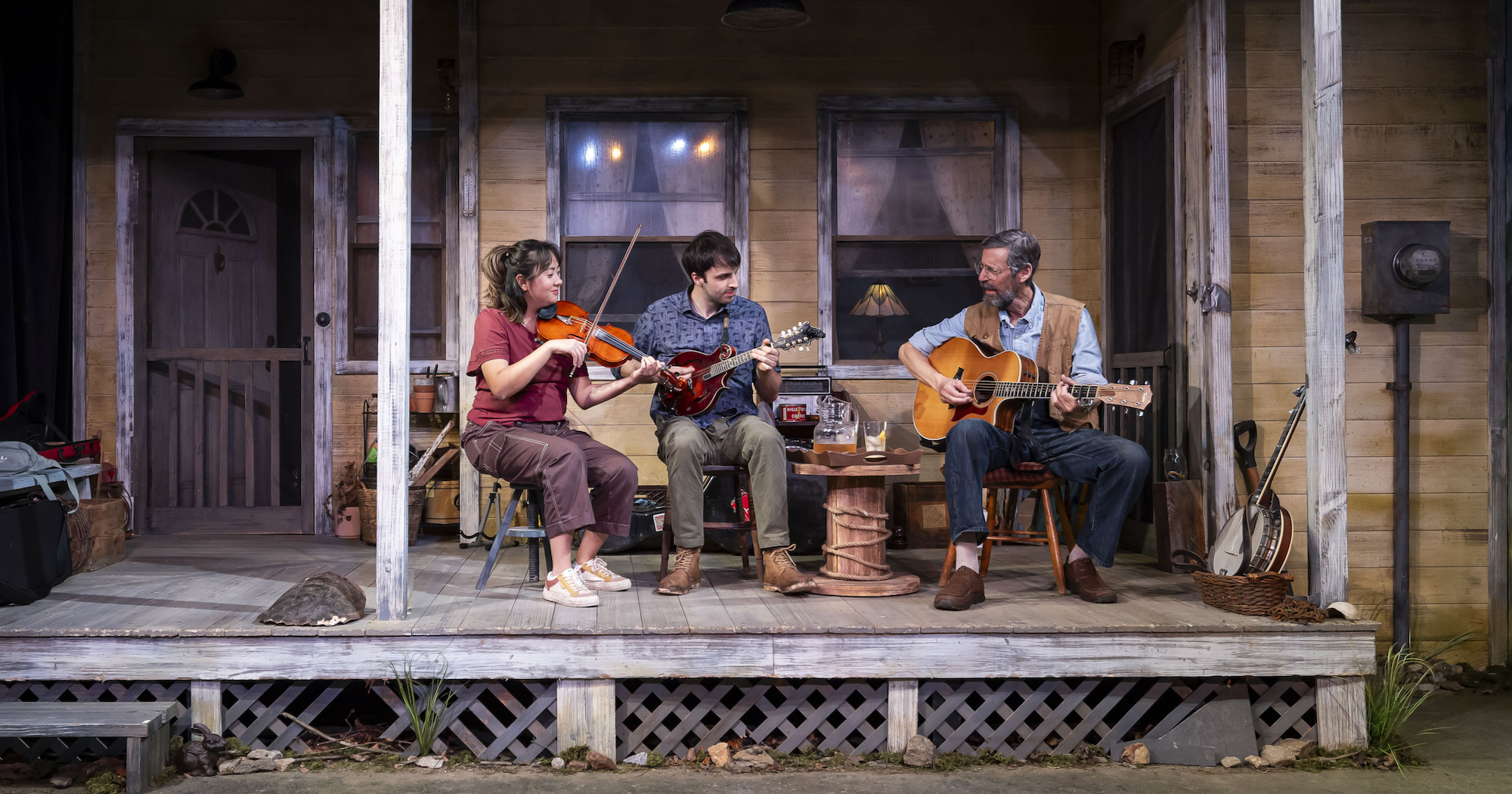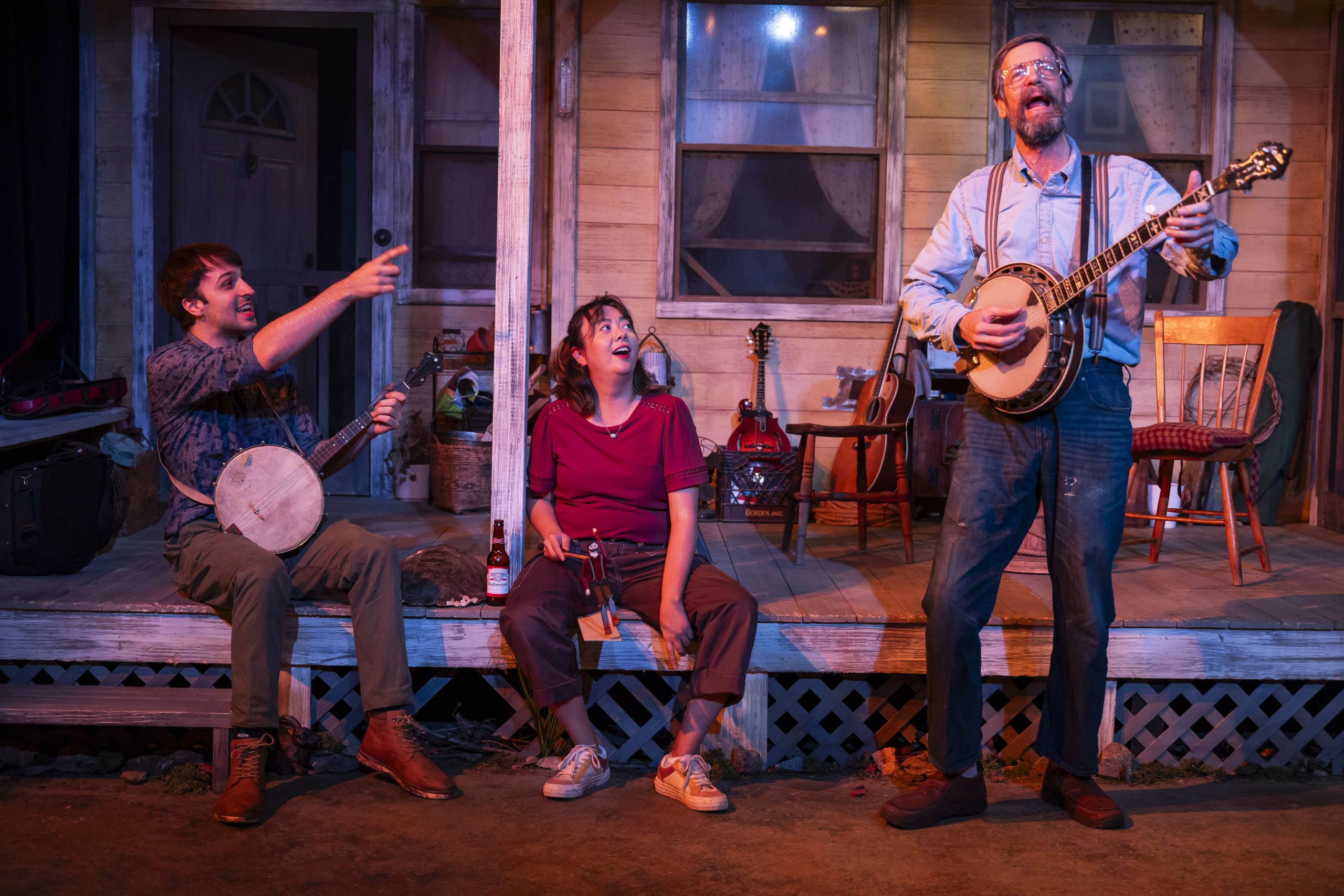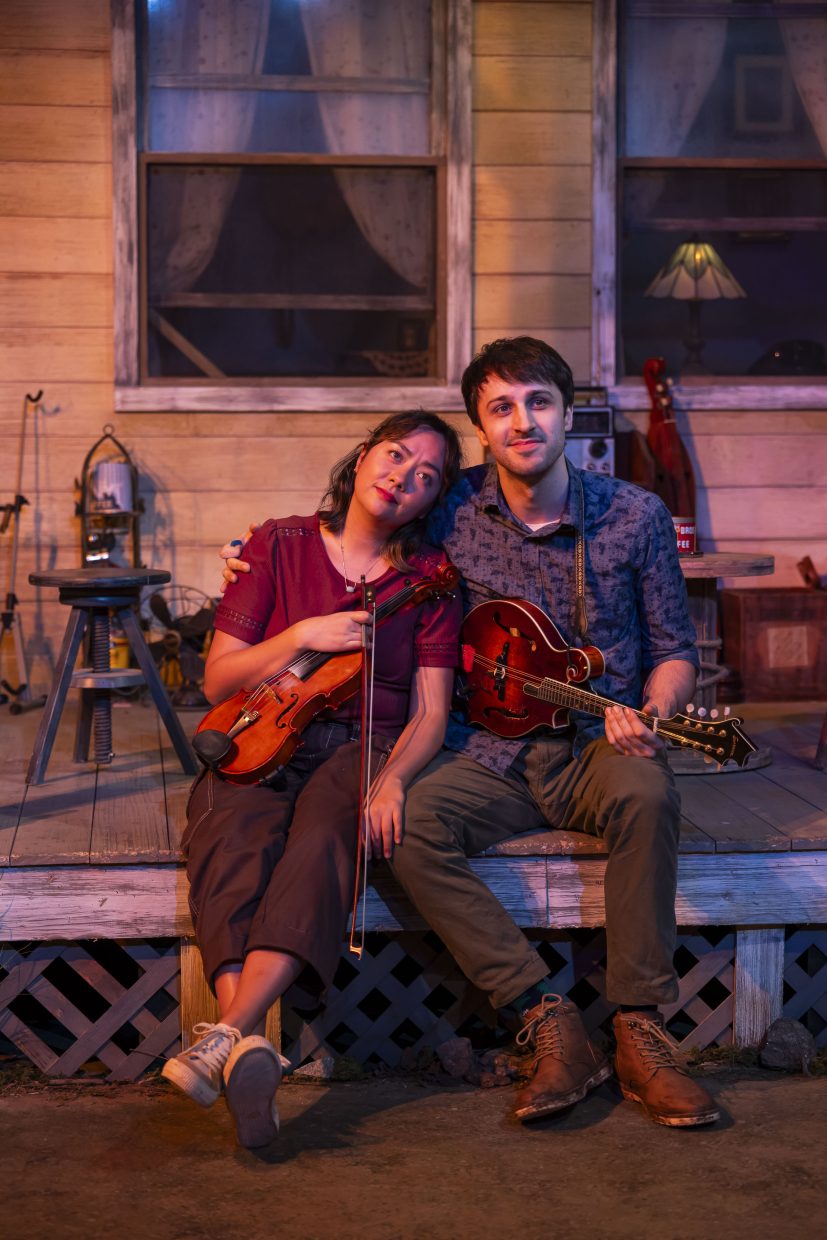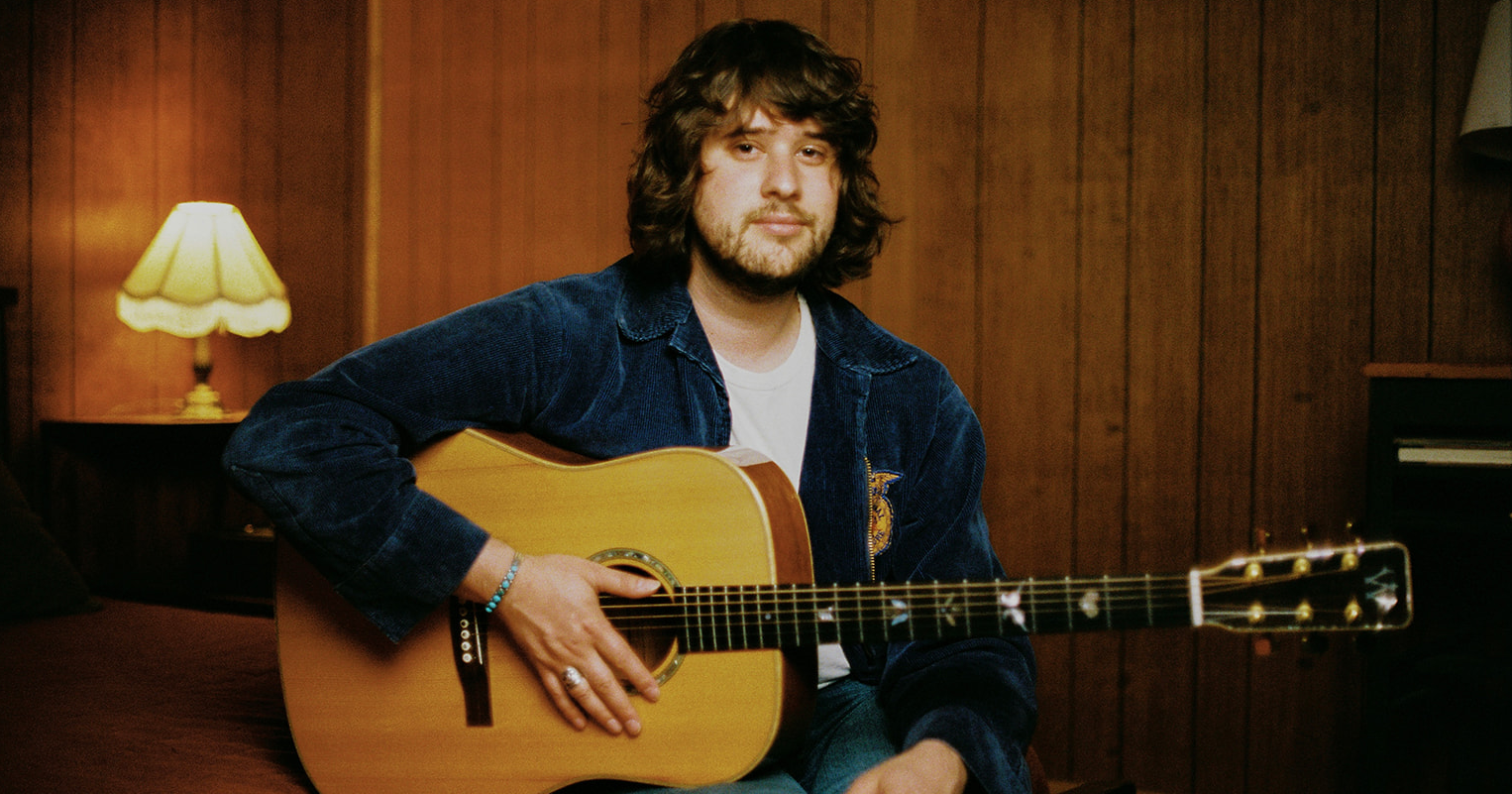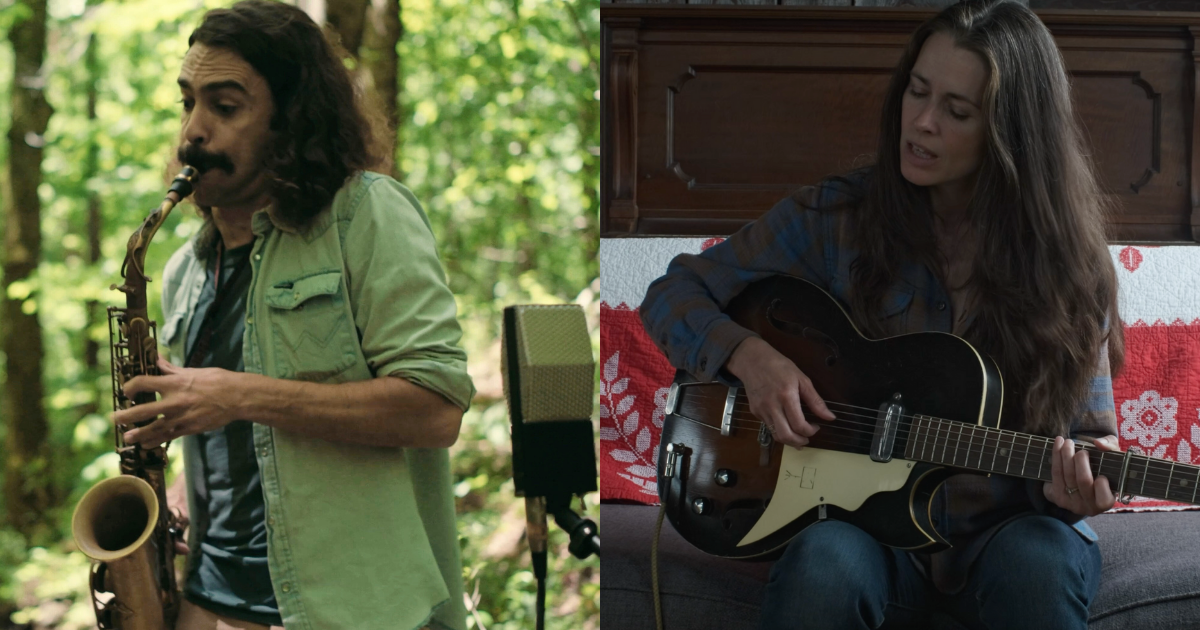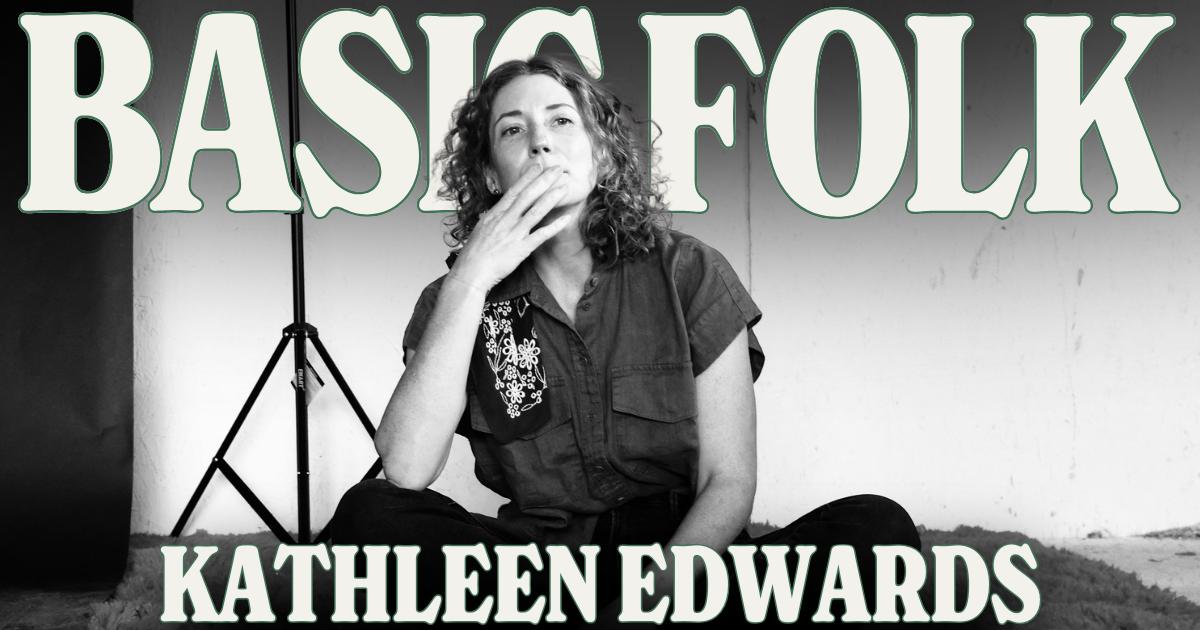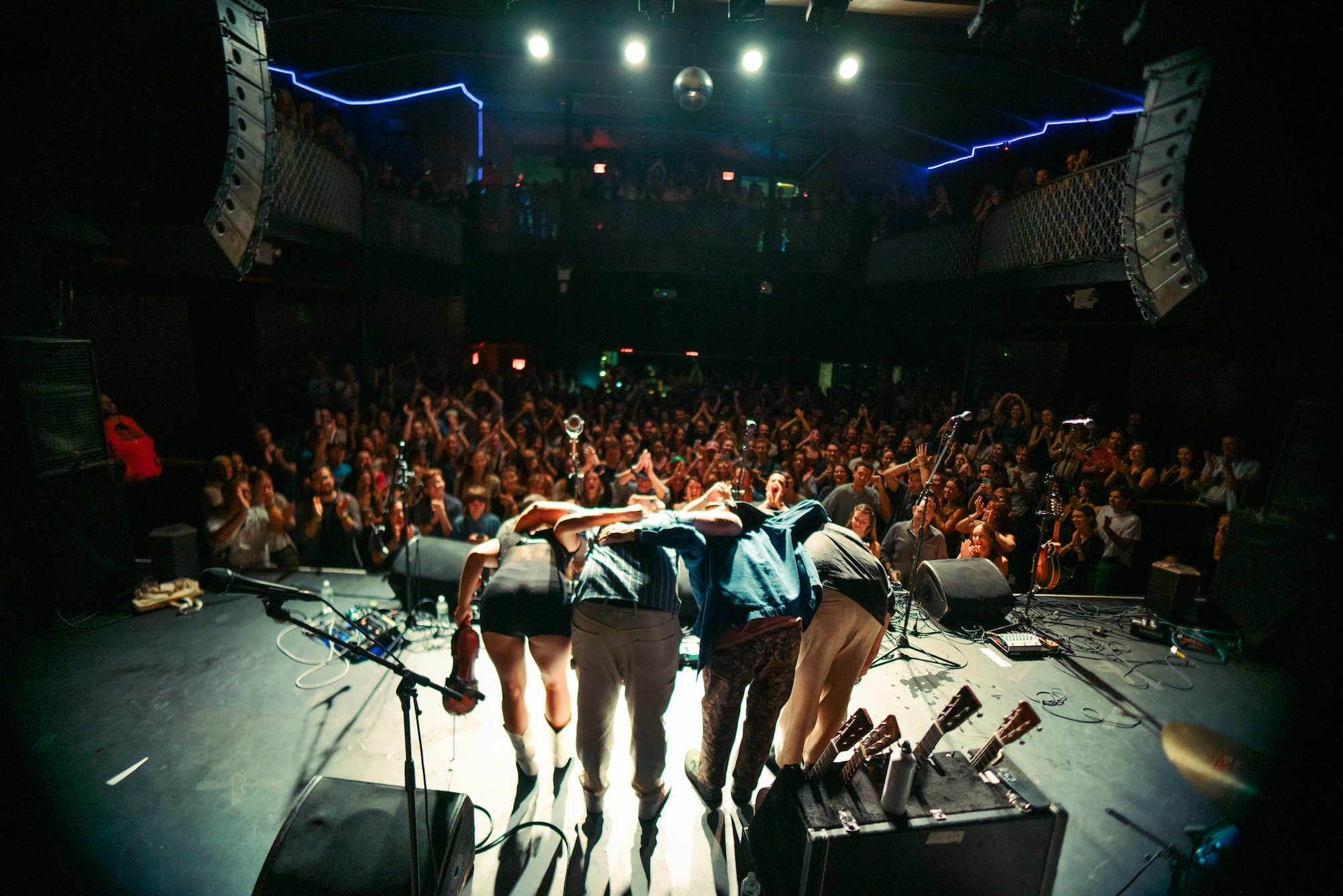It is no news that Madison Cunningham is among the top tier of artists and musicians doggedly pursuing their craft; her newest record, Ace, casually echoes this. Soberly confronting a mountain of grief at home and transmuting its impressions through her open-minded, mature songcraft, the record encourages listeners through a seamless track list whose performances take on the form of open letters to its subjects. She treats an album as the dignified platform it once was and should be and this stance feels radical in today’s streaming-focused world.
A most striking feature of Ace (released on October 10, 2025) is the presentation of her vocals in a more expansive and spacious light, putting aside her much-associated – and anticipated – guitar for the piano, a more than suitable vehicle for this new terrain. Cunningham returns to her native instrument, the keys, as a “lost sojourner,” using it to strip away all but the most critical aspects of the record’s narrative, while highlighting its grooves and timbres.
All the songs played on piano started on guitar and later migrated to it. This practice seemingly grew out of her fascination with embracing the uncomfortable, like the open tunings she is known to use in her celebrated approach to the guitar as an instrument to be challenged and played with. From a new-to-her tuning, to the piano, and then to her band, this game of telephone still allowed Cunningham to sound more like herself.
The game doesn’t stop there. At a lair in Woodstock, New York, in the fall of 2024, Madison and her band committed themselves to a few simple principles: No demos. No vocal comps. “Do the thing that feels most musically true and curious.” And, “Don’t give a shit about what people have known you for.” These rules, in many ways, allow the anthropology of the moment in time during which this record was made to speak loudest. It goes without saying that this path is impossible to tread without a rigorous knowledge of oneself, trust in the folks around you, and, most centrally, the chops to back it up. The consequence of these choices is a record with a narrative “spine” throughout, animating what Cunningham likens to a ballet in its transitions – something she has been working toward both in the studio and on the road since her triumphant, full-length debut in 2019, Who Are You Now.
The song “Wake,” a duet with Robin Pecknold of Fleet Foxes, evokes the kaleidoscopic nexus of Alison Krauss & Robert Plant’s Raising Sand, the orchestration of Gillian Welch & David Rawlings, and the cinematic flair of Gustavo Santaolalla on top. More stripped-down performances, such as “Take Two” and “My Full Name,” demonstrate Madison’s subtle confidence as both a devoted curator and a fearless innovator. Woodwinds underscore and bookmark this collection’s ethereal climate, thanks to the work of Jesse Chandler. Taken as a whole, Ace brings the listener into the same trenches Madison found herself in and onward toward truth in the face of its hardships.
BGS reached Madison Cunningham via Zoom in mid-September to discuss Ace, its making, and the guidelines and rules by which she brought these songs into the world.
I noticed that you described the record as “light” when making it, despite its sober depiction of difficult subject matter. Which aspects were light to you?
Madison Cunningham: That’s a great question. The mission for making the record was really clear and all the “guidelines” were set up well in advance, which was something I had never done before. In the past, my process has been more about figuring it out as we go. This time, my band and I were very prepared. I used the touring band that I’ve been with for the last five years, and the deep collaboration and shared language we’ve developed over that time made everything feel so fluid.
We were all “cracked open” in this special way and we laughed the whole time. That’s probably what I mean the most about the record being “light,” how joyful it felt. I didn’t feel much fear while we were making it. I just had a picture of how I wanted it to sound, and it already was sounding like that. That felt like a relief.
Did you feel like you had less to prove in a superficial sense?
I guess there’s always something to prove. I don’t mean to erase the feeling that I had, which was, of course, a certain amount of pressure or wanting it to level up in some way. But, in light of being quite devastated in my personal life, everything else felt so small compared to the mountain I felt like I was climbing at home.
And maybe that was the gift and that’s why everything felt like it. For whatever reason, everything felt like green lights. It just couldn’t have been easier. Also, I’d never had a more fluid relationship with my label; there was no argument about how this was going to happen. It just was like, “Go. Do it.”
How would you describe the guidelines you had in place for this record and how did they differ from your usual process? Also, did playing the piano more for this record affect your writing style, perhaps making it more expansive in some ways?
I started as a kid on piano first and it had a resurgence in my life in the last three years. I fell back in love with it and I enjoyed the feeling of being a lost sojourner on it, just being like, “Oh, I’m finding all these things that I now am – I found a style here that I’m injecting into my guitar playing.” I wanted to play guitar more like a pianist.
One of my guidelines was, “Just don’t give a shit about what people have known you for, what they might expect. Do the thing that feels most musically true and curious.” And that sounds a lot like permission, but it was also a guideline. Another guideline was, “Make sure that there’s emotional delivery over anything that sounds too perfect. And don’t compromise on that.”
The other set of guidelines were between me and my band: we did a lot of rehearsal beforehand, but we didn’t record anything, so there were no demos. That was a huge rule. I also said, “I don’t want to do any vocal comps. I just want to sing the songs live.” That was helpful. It was another way of being like, “Okay, focus, and be in the room for the moment that these songs are being captured.” So, yeah, there was no previous, “Ah, but shit, we gotta out-beat that one demo we made.” Because that slate was so clean, I think everything was clearer.
During the recording process, do you listen to other music for comfort or do you stay entirely within the feedback loop of your own project? I’m also curious if the recording period was a continuous block of time, which would obviously influence your ability to listen to music.
We did record it continuously, and I don’t usually listen to music while I’m making a record. Honestly, destination recordings help so much with that, because you’re just immersed in the physical and spiritual environment of the whole thing. We were up at a lair and it was fall – it was this time last year – and there’s this beautiful hike that allowed you to look over the reservoir and the golden, brown, red leaves. I felt so romantic that whole time. Even if there was something that wasn’t working, I just had such faith it was going to get there.
We also had a crazy sort of work cycle, which was [that] we would start the skeleton of the song in the morning and then we would record until 2:00 AM and finish it. Again, I think because we all had the guidelines, we were like, “We want every song to have woodwinds pretty much, unless it doesn’t call for it, so we’re going to try and flesh it all out in the same day.”
Jesse Chandler did all that. He’s a genius. We would both talk through things we were both hearing, and then he would just play it all. It was like building a puzzle in real time, and it felt so wonderful to be able to see it all and to feel moved by it. We barely did any overdubs. We did another session in LA a month later after those two weeks up at Woodstock and did a few little overdubs, but we had mainly done everything while we were there.
Ace feels like a return to the “record” as a dignified format. In the lead-up to making it, did you think about the songs as individual tracks – as it relates to streaming culture – or did you focus on creating a cohesive narrative for the entire album?
There are so many examples of records that feel like a full statement and we’ve lost that. That feels radical now. I feel like I’ve made records that have been molded to the current format and I was so disinterested in that this time. I am so over the, “Hey, let’s just do what everyone else is doing,” and, “It’s guaranteed to work.” I really mistrust people when they say that to me, and that mistrust has usually been right.
Even if I see the “format” working for someone else, I’m like, “But that’s not me. That’s not my music, so we can’t say that’s the target, that’s the answer.” I was so interested in making the record feel like a ballet and feeling like the transitions were seamless. It was the first record I felt like I made that had a spine that connected the whole thing and I still find such value in that.
To be honest, we also made efforts to make sure that the songs were not too long. They were separated from their instrumental tracks so that it could work for playlisting. We weren’t, like, fully in protest.
When working on a song like “Wake,” where did that start? How different does it look from when you’re playing it on the couch, versus sitting down with Robin [Pecknold] to record it? Could you walk me through how that song got made? I love how active the guitar parts are, the closeness of the vocal harmonies, and how relaxed everything feels in the recording.
MC: I love that. I really appreciate that it comes across that way. That was the goal and the way that it was written. I wrote it with another songwriter named Will Taylor and we were both just playing these counterparts. And that’s where the seamlessness of it kind of took place; on the recording, that’s the direction I wanted it to go in. Then I just added some different flavors.
All those guitar parts you hear were added and layered, but I didn’t do very many takes of them, so that’s how it might feel live. I didn’t get in there and try to overly correct things. I wanted it to breathe. That has to be one of my favorite songs on the record because we wrote it in a Nashville blizzard and it sounds like that. The guitar part sounds like snowflakes falling in different directions to me, and Robin’s voice is just like a warm fire.
Did you record that in Nashville, or did you just write it in Nashville?
Wrote it in Nashville, recorded it in Los Angeles a year later, and we did all of that, everything that you hear, in one day. I recorded the main guitar and sang at the same time and then Robin sang in the other room. And once we figured that out, we added all the guitars, then Daniel Rhine added upright bass, and then we did the foot stomps at the end. And that was the song.
For the guitar-centric people, is “Wake” in an open tuning, and do you mind sharing what that is?
No, I always forget it, but I’m going to pull it up on my “favorite tunings” column.
It is C-G-D-F-A-C, from low to high. It’s basically an open suspended chord and it’s so tricky. At first, you’re like, “There’s no possible way through this tuning.” And that’s the tuning I wrote all the record on. Every guitar here, it’s in that tuning.
Your music contains rhythmic feels that seem to be informed by drums or percussion, outside of the guitar. I know you’ve played percussion – does your drumming experience influence your songwriting on other instruments? Do you workshop things back and forth with your drummer, Kyle [Crane] in this way?
I feel like if I were to show you the original demos of these songs, there was already such a strong, informed rhythmic thing, more than in the past for me. And Kyle, I think he was playing into, “How do I make this feel like we thought of this at the same time? Or, “How can it feel like that?” For example, “Break the Jaw” came out of a band jam. I wrote the lyrics to it, but the feel of the song wasn’t something Kyle tried to figure out after the fact. We were figuring it out in real time and I think that’s why it came out so cool. Everybody put their stamp on it.
The whole process was us trying to figure out the skeleton of rhythm and how to make it feel like it wasn’t fighting with itself.
I’m wondering how you approach sequencing an album. When you consider the interludes, the streaming world, live performance, and recording, are there specific ideas, people, or records that have helped you learn how to think about the flow and energy of a record from start to finish?
Ooh, yeah, I’m sure. Radiohead is a big one for me. I think the sequencing of their records is so specific. Their opening track is always perfect to me and their closing track is always perfect. From the beginning of making this record, before all the songs were written, I knew which was going to be the first and which was going to be the last. And then Robbie Lackritz – who made the record with me – and I spent a lot of time delineating over sequencing.
The story of the record is important. Obviously, the tempo arc, and the keys melded together. The story has a plot, so that was a big thing. I wasn’t trying to write it like that, but from an aerial view, I was like, “Oh yeah, this is how it connects.”
In the song “Take Two,” you mention a fear of writing simple songs. Did this perceived fear influence the guidelines you set for yourself when writing the album? Also, were the initial ideas for the songs primarily written on guitar or piano?
For every song that ended up on piano, it actually started on guitar – with the exception of the instrumental pieces, which were formed from the piano.
For example, “Shore” started on guitar and so did “My Full Name,” but they felt like piano songs to me because I was doing a lot of transposing between instruments to see if the song was good. I would transfer it between instruments and say, “Yeah, it still has a message.” In doing that, I fell in love with “My Full Name” on the piano.
“Take Two” also started on guitar, and I was like, “I don’t like this song very much. I love what it’s saying, but I find it to be so boring.” It was a song that everybody on my team was attached to. When we got to Woodstock, the song came together on the piano before we were going to record it and I was like, “I love this song.” Something made me say, “Hell yeah.”
On a more technical note, I’m curious about the guitar sound for “Skeletree.” It sounds like a low-tuned nylon string guitar with a contact mic. What was it?
Killed it. That’s exactly what it is. There was this big bedroom with a tall ceiling and that’s where we stored the amp. The contact mic was also sitting in a really big room, which contributed to the fairy dust.
Very cool. Were there any other notable guitars on the record that were new to you or were just lying around the studio?
I used a hollow body for the bridge of “Break the Jaw.” I think it might have been a 330 or something. I really love that you can hear a crunchy, kind of reverb thing just break out for a second. I also used my Collings acoustic. I know I had that for a few, but mainly it was just that nylon string that I stuck with. A little bit of the Collings, and then that electric guitar once, for one section of a song, and then all piano after that.
I did play electric bass for “Golden Gate” and “Mummy” too.
Do you ever write on bass or play along with records on bass?
I do, and I wrote “Golden Gate” on bass. That line that you hear at the beginning, it started with that.
Do you have any advice for people who want to feel like they don’t have anything to prove, especially if they are working toward a platform in the process?
I feel like the thing that I’ve learned the most from is, even if you don’t fully have your sound yet, make it a mission to just make music you like the sound of. Even if you haven’t fully found yours yet, you will, by way of learning what it is that you love and what you like coming out of your own body and mouth and fingers.
I think the things that have spoken the most to people is going, “I can tell that you love what you’re doing.” And even though in my earlier years, you could definitely see a lot of comparisons, I needed those because those were the things that made me believe in music and what I was doing. And then I think those faded away and now this record is the first time I’ve ever been like, “This is what I’ve always wanted to make. This sounds like me.” It just took a minute, but I enjoyed the whole ride.
I also feel like I was never not myself. Everything that I did, I felt was a risk in some way or stretched me as an artist. … What I loved the most about making this record was that all of it felt in balance. Finally, my voice was the loudest.
That’s just because I finally, like you said, trusted myself, trusted the process. I knew enough to know that even if something isn’t working the first time, there’s always a second, third, or fourth to try. So, trust your curiosity and do whatever it takes to make sure your curiosity is above the fearful, negative self-talk.
Photo Credit: Sean Stout
